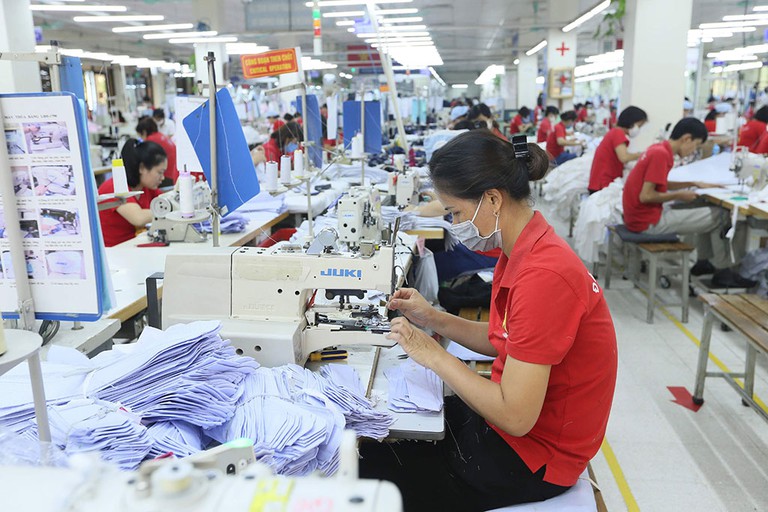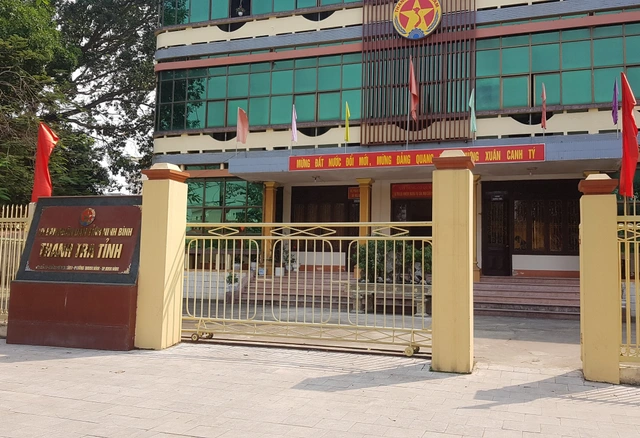Both employees and employers have the right to unilaterally terminate the employment contract. However, the law in Vietnam also stipulates that employers cannot unilaterally terminate the employment contract if they fall into the following 7 cases.

07 Cases in which an employer is prohibited from unilaterally terminating an employment contract in Vietnam (Internet image)
07 Cases in which an employer is prohibited from unilaterally terminating an employment contract in Vietnam
The law always protects the rights of employees in their relationship with employers. Article 37 of the Labor Code 2019 (effective from January 1, 2021) stipulates 07 cases in which an employer is prohibited from unilaterally terminating an employment contract in Vietnam as follows:
1. The employee is suffering from an illness or work accident, occupational disease and is being treated or nursed under the decision of a competent health institution
Note: Employers have the right to unilaterally terminate the employment contract in the following cases:
- The employee is sick or has an accident and remains unable to work after having received treatment for a period of 12 consecutive months in the case of an indefinite-term employment contract,
- The employee is sick or has an accident and remains unable to work after having received treatment for 06 consecutive months in the case of an employment contract with a fixed term of 12 – 36 months,
- The employee is sick or has an accident and remains unable to work after having received treatment for more than half the duration of the contract in case of an employment contract with a fixed term of less than 12 months.
2. The employee is on annual leave
Employers do not have the right to unilaterally terminate the employment contract when the employees are entitled to take annual leave. According to Article 113 of the Labor Code 2019, any employee who has been working for an employer for 12 months is entitled to fully-paid annual leave, which is stipulated in his/her employment contract as follows:
- 12 working days for employees who work in normal working conditions;
- 14 working days for employees that are minors, the disabled, employees who do laborious, toxic or dangerous works;
- 16 working days for employees who do highly laborious, toxic or dangerous works.
At the same time, an employee who has been working for an employer for less than 12 months will have a number of paid leave days proportional to the number of working months.
3. Employees is on personal leave
Article 115 of the 2019 Labor Code stipulates 04 cases where an employee is entitled to take a fully paid personal leave, including:
- Marriage: 03 days;
- Marriage of his/her biological child or adopted child: 01 day;
- Death of his/her biological or adoptive parent; death of his/her spouse’s biological or adoptive parent; death of spouse, biological or adopted child: 03 days.
- Case of the death of his/her grandparent or biological sibling; marriage of his/her parent or natural sibling. (unpaid leave)
4. Employee is on any other types of leave permitted by the employer
In case the employee takes leave when the employer allows, the employer is not allowed to unilaterally terminate the employment contract.
5. The employee is pregnant
6. Employee is on maternal leave
Based on Articles 32, 33, 34 and 37 of the Law on Social Insurance 2014, the maternity leave period of employees is stipulated as follows:
- Pregnant female employees are entitled to take leaves for 5 prenatal checks-up, one day for each check-up; employees who live far from health establishments or have pathological signs or abnormal pregnancies are entitled to take a two-day leave for each prenatal check-up.
- When getting miscarriage, abortion, stillbirth or pathological abortion, a female employee may take a maternity leave as prescribed by a competent health establishment as follows:
- 10 days, for pregnancy of under 5 weeks;
- 20 days, for pregnancy of between 5 weeks and under 13 weeks;
- 40 days, for pregnancy of between 13 weeks and under 25 weeks;
- 50 days, for pregnancy of 25 weeks or more.
- Leave period for childbirth
Female employees are entitled to a 6-month leave before and after childbirth under the maternity benefits. For a female employee who gives birth to twins or more infants, she is entitled to an additional leave of 1 month for each infant from the second. (Note: The maternity leave period before childbirth must not exceed 2 months)
Male employees who are paying social insurance when their wife gives birth are entitled to leave for maternity benefits as follows:
Male employees currently paying social insurance premiums whose wives give birth to children are entitled to a paternity leave of:
- 5 working days;
- 7 working days, in case their wives undergo a surgical birth or give birth to children before 32 weeks of pregnancy;
- 10 working days, in case their wives give birth to twins; or additional 3 working days for each infant from the second;
- 14 working days, in case their wives give birth to twins or more infants and take childbirth operation.
- Leave period when taking contraceptive measures
- 7 days, for female employees implanted with intrauterine devices;
- 15 days, for employees taking sterilization measures.
7. Employee is raising a child under 12 months of age
Thus, according to the above regulations, if the employer unilaterally terminates an employment contract as specified in the 07 cases above, their action is considered illegal and they must bear legal consequences according to the provisions of the law.
Legal consequences when employers unilaterally terminates an employment contract
According to the provisions of Article 41 of the Labor Code 2019, employers who unilaterally terminates an employment contract must have the following obligations:
- The employer that illegally unilaterally terminates an employment contract with an employee shall reinstate the employee in accordance with the original employment contract, and pay the salary, social insurance, health insurance and unemployment insurance premiums for the period during which the employee was not allowed to work, plus at least 02 months’ salary specified in the employment contract.
- After the reinstatement, the employee must return the severance allowance or redundancy allowance (if any) to the employer.
- Where there is no longer a vacancy for the position or work as agreed in the employment contract and the employee still wishes to work, the employer shall negotiate revisions to the employment contract.
Ty Na
- Key word:
- Vietnam
 Article table of contents
Article table of contents














